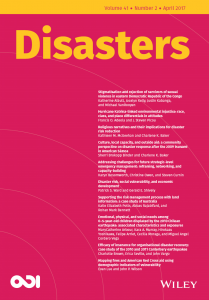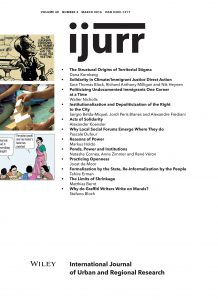Interview with Jon Gabe, Professor of Sociology, Royal Holloway University of London; Chair of Trustees of the Foundation for Sociology of Health & Illness
Jonathan Gabe is Professor of Sociology at Royal Holloway University of London, and the Chair of Trustees of the UK Charity, Foundation for Sociology of Health & Illness. In a recent interview, Jon spoke about his research, as well as the objectives and activities of the Foundation. The Foundation Objectives The Foundation for the Sociology of Health and Illness was established in December 1999 as a charity with the aim of promoting and improving social scientific research, education and scholarship...




















